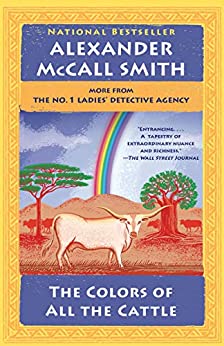More on this book
Community
Kindle Notes & Highlights
Read between
July 17 - August 3, 2020
That was one of the things that worried her about politics: you had to cultivate people, and in Mma Ramotswe’s view, the cultivation of others could very quickly deteriorate into the worst sort of flattery.
There were many people who said they would get in touch but who did not—the world, it seemed, was full of people who made idle promises. And one of the things about getting on a bit in life was that you came to realise that half of what people agreed to do would never be done. Charlie was still too young to know that, but he would find out before too long. Of course, Mma Ramotswe did not approve of cynicism—she still took people on trust, she still gave them the benefit of the doubt, but at least she had learned not to be disappointed when people failed to do what they said they would do.
Jo Stephen liked this
“People are easily taken in by meaningless slogans,” he said. “That’s why they elect the wrong people. It happens time after time.”
Mr. Polopetsi was probably right: people loved presents—of course they did. And if the offer of presents came from a politician, even if that meant that the money used to buy the presents came from the taxpayer, people seemed not to mind too much. But she would not participate in that sort of thing, even if it meant that she lost the election. If you won on the basis of lies and false promises—bribes, really—then your victory would be a hollow one.


